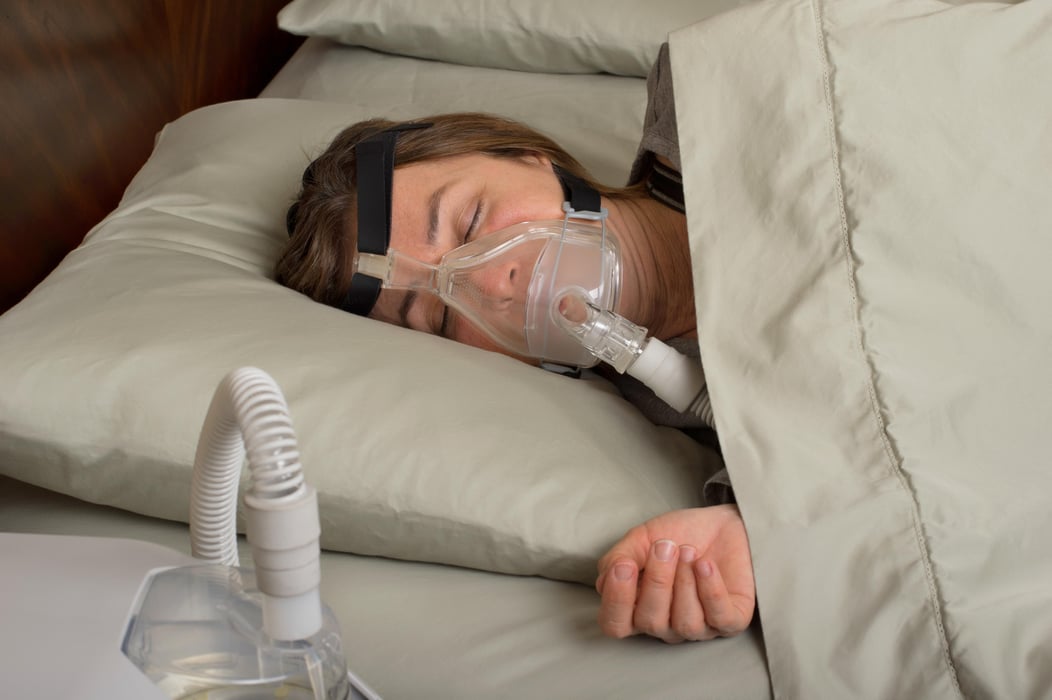Sleep Apnea Treatment Cuts Nighttime Heartburn, Respiratory Symptoms

TUESDAY, Sept. 5, 2023 (HealthDay News) -- Treatment with positive airway pressure (PAP) for obstructive sleep apnea (OSA) for two years is associated with a decrease in nighttime heartburn and respiratory symptoms, according to a study published online Aug. 30 in ERJ Open Research.
Össur Ingi Emilsson, M.D., from University of Iceland in Reykjavik, and colleagues studied the effect of PAP treatment on nocturnal gastroesophageal reflux (nGER) and respiratory symptoms among 732 patients with newly diagnosed OSA.
The researchers found that PAP treatment among full users resulted in a decreased presence of nGER (adjusted odds ratio [aOR], 0.58) and wheezing (aOR, 0.56) at two-year follow-up compared with partial/non-PAP users. Across levels of PAP use, decreases in nGER were associated with a decrease in productive morning cough (aOR, 4.70) and a decrease in chronic bronchitis (aOR, 3.86). However, decreases in nGER were not associated with decreased wheezing (aOR, 0.90; 95 percent confidence interval, 0.39 to 2.08). PAP treatment directly led to a decrease in wheezing, which was not mediated through nGER. However, decreased productive cough with PAP treatment was mediated through a decrease in nGER.
“For OSA patients with wheezing or nGER, PAP treatment is likely to have a beneficial effect,” the authors write.
Related Posts
Free Fertility App Shared Info With Third Parties, FTC Says
THURSDAY, May 18, 2023 (HealthDay News) -- Owners of the free fertility app...
Long-Term Heat, Cold Exposure Linked to Female Newborn Lung Function
MONDAY, March 20, 2023 (HealthDay News) -- Long-term heat and cold exposure is...
Telemedicine, In-Person Visits Show High Diagnostic Concordance
MONDAY, Sept. 12, 2022 (HealthDay News) -- Telemedicine and in-person diagnoses...
Ultrahigh-Resolution CCTA Has High Diagnostic Accuracy for Coronary Artery Disease
WEDNESDAY, June 21, 2023 (HealthDay News) -- For patients at high risk for...
